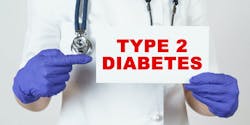Do epigenetic changes cause type 2 diabetes, or do the changes occur only after a person has become ill? A new study by researchers at Lund University provides increased support for the idea that epigenetic changes can cause type 2 diabetes. The researchers behind the new findings published in Nature Communications now aim to develop methods for disease prevention.
The researchers studied epigenetics in insulin-producing cells from donors and found 5584 sites in the genome with changes that differed between 25 individuals with type 2 diabetes and 75 individuals without the disease. The same epigenetic changes found in people with type 2 diabetes were also found in individuals with elevated blood sugar levels, which increases the risk of developing the disease.
The study identified 203 genes with different expressions in individuals with type 2 diabetes compared to the control group. The researchers found that the gene RHOT1 showed epigenetic changes in people with type 2 diabetes and that it also played a key role in insulin secretion in insulin-producing cells. When they knocked out the gene expression of RHOT1 in cells from donors without type 2 diabetes, insulin secretion decreased.
One goal of the research is to develop a blood-based biomarker that can predict who is at risk of developing type 2 diabetes. Therefore, the researchers investigated whether their results from insulin-producing cells in the pancreas were reflected in the blood of living people. They found epigenetic changes in the blood of a group of 540 people without the disease and they linked this to the future development of type 2 diabetes in half of the individuals.
Factors such as unhealthy diet, sedentary lifestyle, and ageing increase the risk of type 2 diabetes, and they also affect our epigenetics. With the new study, researchers have identified new mechanisms that may make it possible to develop methods to help prevent type 2 diabetes.

